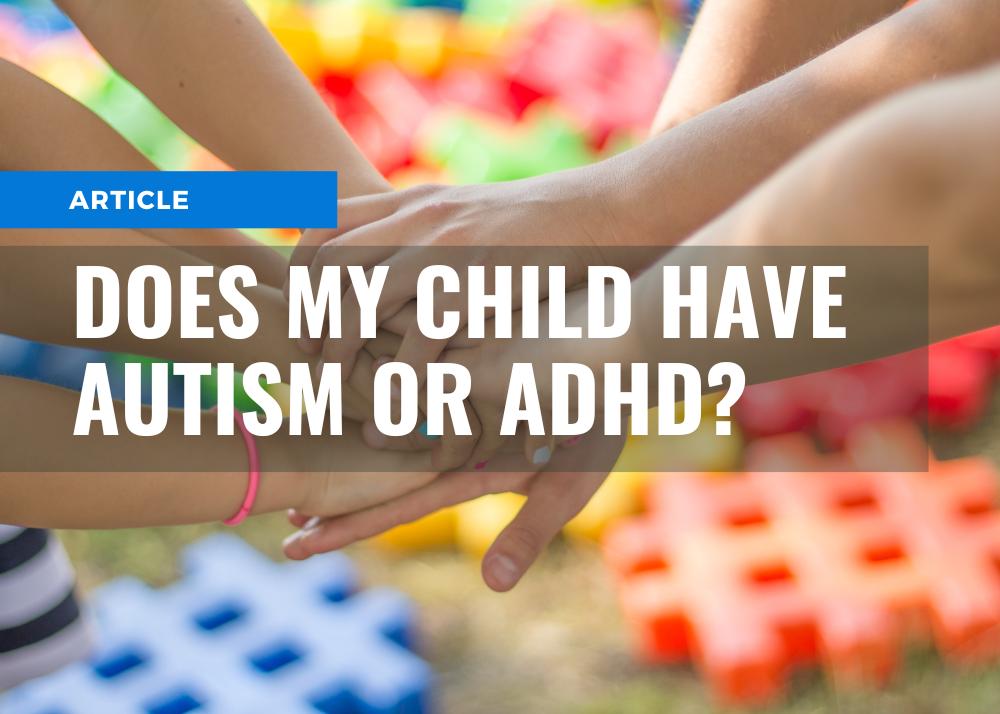
Navigating Childhood Development: Understanding Autism and ADHD
Parenting is a journey filled with questions and discoveries, especially when it comes to understanding and nurturing the unique qualities of your child. In this blog post, we'll delve into the frequently asked question: "Does my child have autism or ADHD?" It's essential to approach this enquiry with empathy, curiosity, and a commitment to support your child's well-being.
Recognising Differences:
Children are wonderfully diverse in their development, and it's common for parents to notice variations in behaviour, attention spans, and social interactions. While some differences are a natural part of growing up, certain patterns may prompt questions about autism or ADHD.
Autism Spectrum Disorder (ASD):
Autism is a neurodevelopmental disorder characterised by challenges in social communication and repetitive behaviours. Parents often observe unique behaviours such as difficulties in making eye contact, delayed speech development, and an inclination towards routine.
If you find your child showing intense focus on specific interests or struggling with changes in routine, it might be worth discussing these observations with a healthcare professional who can provide guidance and look at the path to diagnosis.
Attention-Deficit/Hyperactivity Disorder (ADHD):
ADHD, on the other hand, is marked by persistent patterns of inattention, hyperactivity, and impulsivity. Children with ADHD may struggle to stay focused on tasks, have difficulty sitting still, and act on impulses without considering the consequences.
If you notice a consistent pattern of hyperactivity, impulsivity, or difficulty maintaining attention in your child, it's advisable to seek professional advice to explore whether ADHD may be a contributing factor.
Early Intervention is Key:
It's important to recognise that language delay is a common characteristic of Autism Spectrum Disorder (ASD) and ADHD. Children on the autism spectrum may exhibit variations in language development, ranging from delayed speech milestones to challenges in expressive and receptive language skills.
Regardless of whether you suspect autism, ADHD, or any other developmental concern, early intervention plays a crucial role in supporting your child's development. If you have concerns about your child's development, it's recommended to consult with healthcare professionals, including paediatricians, psychologists, or developmental specialists.
Seeking Professional Guidance:
The journey of understanding your child's unique qualities is best undertaken with the support of professionals. A thorough evaluation can help determine whether certain characteristics are within the range of typical development or if they indicate an underlying condition.
Paediatricians, child psychologists, and developmental specialists can conduct assessments to provide insights into your child's strengths and challenges. Collaborating with these professionals can pave the way for tailored strategies and interventions to support your child's growth.
Feel free to reach out to Valerie from Rose Phoenix Health on 0478 129 135 for a free confidential chat to help you navigate the health system effortlessly, work out what testing might help, and tailor the right support for your child’s unique situation.
Embracing Individuality:
It's crucial to remember that every child is unique, and developmental differences don't define their potential. Whether your child is on the autism spectrum, has ADHD, or exhibits distinctive qualities, the focus should be on understanding, acceptance, and fostering an environment that nurtures their strengths.
As parents, navigating the landscape of childhood development can be both rewarding and challenging. Trust your instincts, seek professional guidance when needed, and embrace the journey of understanding and supporting your child's individuality. By approaching potential challenges with empathy and knowledge, you can empower your child to thrive and reach their full potential.
